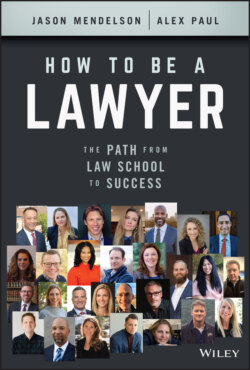Читать книгу How to Be a Lawyer - Jason Mendelson - Страница 20
CHAPTER 3 Classic Coursework (What Is It Good For?)
ОглавлениеDepending on where you go to school, who you have as a professor, and what your own personal interests may be, you will have a wildly varying experience taking the “classics” at law school. Perhaps, inherently, you find yourself intrigued by rabbi trusts, fertile octogenarians, hairy palms, firework explosions on train platforms, or the seemingly infinite ways to define a human death, but what's it all worth when you are at your first job out of school?
This chapter gives advice on what practical knowledge could come out of these classes. In other words, “Okay, I'm dying sitting through civil procedure. Is there anything I could use to make myself a better lawyer once I graduate?”
We won't waste your time with the obvious: if you want to be a constitutional lawyer, pay attention in con law, okay? If you want a fancy billboard one day that has your picture on it, torts and civil procedure might just be your jam. We are going to try to unpack what could be important taking the mandatory classics for when you aren't practicing in that particular area.
Keep our four core concepts in mind and ask yourself the following: How is what I'm learning today potentially applicable to solving a client problem tomorrow?
Note that there are also some variances in which of these classes are mandatory depending on where you go to law school.
